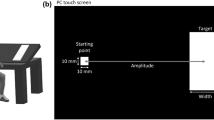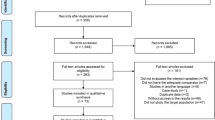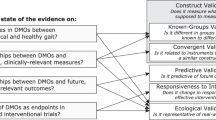Abstract
Psychogenic movement disorders (PMDs) mimic known movement disorders but are not attributed to an underlying neurological pathology and are generally thought to have a psychological origin. Owing to the lack of a clear pathology, patients often experience multiple referrals, frequent office visits, and numerous—often fruitless—technically sophisticated tests and interventions. No standard of care exists for PMDs, and affected patients can experience debilitating symptoms for a lifetime. Some physicians advocate the use of placebo treatment for patients with PMDs, and placebo therapy can have beneficial neurophysiological effects. Innovative research will be necessary to develop effective therapeutics for psychogenic disorders and to make recommendations for future clinician training and health care policy. This Perspectives article aims to trigger international dialogue focusing on the diagnosis and treatment of patients with PMDs, and to reframe and deepen discussion of placebo prescribing for PMDs and beyond.
This is a preview of subscription content, access via your institution
Access options
Subscribe to this journal
Receive 12 print issues and online access
$209.00 per year
only $17.42 per issue
Buy this article
- Purchase on Springer Link
- Instant access to full article PDF
Prices may be subject to local taxes which are calculated during checkout
Similar content being viewed by others
References
Kranick, S. M., Gorrindo, T. & Hallett, M. Psychogenic movement disorders and motor conversion: a roadmap for collaboration between neurology and psychiatry. Psychosomatics 52, 109–116 (2011).
Nowak, D. A. & Fink, G. R. Psychogenic movement disorders: aetiology, phenomenology, neuroanatomical correlates and therapeutic approaches. Neuroimage 47, 1015–1025 (2009).
Miyasaki, J. M., Sa, D. S., Galvez-Jimenez, N. & Lang, A. E. Psychogenic movement disorders. Can. J. Neurol. Sci. 30 (Suppl 1), S94–S100 (2003).
Anderson, K. E. et al. Impact of psychogenic movement disorders versus Parkinson's on disability, quality of life, and psychopathology. Mov. Disord. 22, 2204–2209 (2007).
Hinson, V. K. & Haren, W. B. Psychogenic movement disorders. Lancet Neurol. 5, 695–700 (2006).
Rommelfanger, K. S. Attitudes on mind over matter: physician views on the role of placebo in psychogenic disorders. AJOB Neurosci. (in press).
Fässler, M., Meissner, K., Schneider, A. & Linde, K. Frequency and circumstances of placebo use in clinical practice—a systematic review of empirical studies. BMC Med. 8, 15 (2010).
Sherman, R. & Hickner, J. Academic physicians use placebos in clinical practice and believe in the mind-body connection. J. Gen. Intern. Med. 23, 7–10 (2008).
Tilburt, J. C., Emanuel, E. J., Kaptchuk, T. J., Curlin, F. A. & Miller, F. G. Prescribing “placebo treatments”: results of national survey of US internists and rheumatologists. BMJ 337, a1938 (2008).
Goodwin, J. S., Goodwin, J. M. & Vogel, A. V. Knowledge and use of placebos by house officers and nurses. Ann. Intern. Med. 91, 106–110 (1979).
Voon, V. et al. The involuntary nature of conversion disorder. Neurology 74, 223–228 (2010).
Kobayashi, K., Lang, A. E., Hallett, M. & Lenz, F. A. Thalamic neuronal and EMG activity in psychogenic dystonia compared with organic dystonia. Mov. Disord. 26, 1348–1352 (2011).
Espay, A. J. et al. Cortical and spinal abnormalities in psychogenic dystonia. Ann. Neurol. 59, 825–834 (2006).
Morgante, F. et al. Abnormal tactile temporal discrimination in psychogenic dystonia. Neurology 77, 1191–1197 (2011).
Quartarone, A. et al. Abnormal sensorimotor plasticity in organic but not in psychogenic dystonia. Brain 132, 2871–2877 (2009).
Voon, V. et al. Emotional stimuli and motor conversion disorder. Brain 133, 1526–1536 (2010).
Voon, V., Brezing, C., Gallea, C. & Hallett, M. Aberrant supplementary motor complex and limbic activity during motor preparation in motor conversion disorder. Mov. Disord. 26, 2396–2403 (2011).
Espay, A. J. et al. Opinions and clinical practices related to diagnosing and managing patients with psychogenic movement disorders: an international survey of movement disorder society members. Mov. Disord. 24, 1366–1374 (2009).
Gupta, A. & Lang, A. E. Psychogenic movement disorders. Curr. Opin. Neurol. 22, 430–436 (2009).
Factor, S. A., Podskalny, G. D. & Molho, E. S. Psychogenic movement disorders: frequency, clinical profile, and characteristics. J. Neurol. Neurosurg. Psychiatry 59, 406–412 (1995).
Czarnecki, K. & Hallett, M. Functional (psychogenic) movement disorders. Curr. Opin. Neurol. 25, 507–512 (2012).
Williams, D. T., Ford, B. & Fahn, S. Phenomenology and psychopathology related to psychogenic movement disorders. Adv. Neurol. 65, 231–257 (1995).
American Psychiatric Association. Diagnostic and Statistical Manual of Mental Disorders®, 4th edn, text revision (American Psychiatric Publishing, 2000).
Feinstein, A., Stergiopoulos, V., Fine, J. & Lang, A. E. Psychiatric outcome in patients with a psychogenic movement disorder: a prospective study. Neuropsychiatry Neuropsychol. Behav. Neurol. 14, 169–176 (2001).
Jankovic, J., Vuong, K. D. & Thomas, M. Psychogenic tremor: long-term outcome. CNS Spectr. 11, 501–508 (2006).
Salinsky, M., Spencer, D., Boudreau, E. & Ferguson, F. Psychogenic nonepileptic seizures in US veterans. Neurology 77, 945–950 (2011).
Thomas, M., Vuong, K. D. & Jankovic, J. Long-term prognosis of patients with psychogenic movement disorders. Parkinsonism Relat. Disord. 12, 382–387 (2006).
Fahn, S. & Williams, D. T. Psychogenic dystonia. Adv. Neurol. 50, 431–455 (1988).
Baik, J. S., Han, S. W., Park, J. H. & Lee, M. S. Psychogenic paroxysmal dyskinesia: the role of placebo in the diagnosis and management. Mov. Disord. 24, 1244–1245 (2009).
Van Nuenen, B. F., Wohlgemuth, M., Wong Chung, R. E., Abdo, W. F. & Bloem, B. R. Acupuncture for psychogenic movement disorders: treatment or diagnostic tool? Mov. Disord. 22, 1353–1355 (2007).
Shamy, M. C. The treatment of psychogenic movement disorders with suggestion is ethically justified. Mov. Disord. 25, 260–264 (2010).
Bostick, N. A., Sade, R., Levine, M. A. & Stewart, D. M. Placebo use in clinical practice: report of the American Medical Association Council on Ethical and Judicial Affairs. J. Clin. Ethics 19, 58–61 (2008).
Benedetti, F., Mayberg, H. S., Wager, T. D., Stohler, C. S. & Zubieta, J. K. Neurobiological mechanisms of the placebo effect. J. Neurosci. 25, 10390–10402 (2005).
Goetz, C. G. et al. Placebo response in Parkinson's disease: comparisons among 11 trials covering medical and surgical interventions. Mov. Disord. 23, 690–699 (2008).
Bendtsen, L., Mattsson, P., Zwart, J. A. & Lipton, R. B. Placebo response in clinical randomized trials of analgesics in migraine. Cephalalgia 23, 487–490 (2003).
Dworkin, R. H., Katz, J. & Gitlin, M. J. Placebo response in clinical trials of depression and its implications for research on chronic neuropathic pain. Neurology 65 (Suppl. 4), S7–S19 (2005).
Lidstone, S. C. et al. Effects of expectation on placebo-induced dopamine release in Parkinson disease. Arch. Gen. Psychiatry 67, 857–865 (2010).
Zubieta, J. K. et al. Placebo effects mediated by endogenous opioid activity on mu-opioid receptors. J. Neurosci. 25, 7754–7762 (2005).
Benedetti, F. et al. Placebo-responsive Parkinson patients show decreased activity in single neurons of subthalamic nucleus. Nat. Neurosci. 7, 587–588 (2004).
Amanzio, M. & Benedetti, F. Neuropharmacological dissection of placebo analgesia: expectation-activated opioid systems versus conditioning-activated specific subsystems. J. Neurosci. 19, 484–494 (1999).
Nolan, T. A., Price, D. D., Caudle, R. M., Murphy, N. P. & Neubert, J. K. Placebo-induced analgesia in an operant pain model in rats. Pain 153, 2009–2016 (2012).
Pollo, A., Vighetti, S., Rainero, I. & Benedetti, F. Placebo analgesia and the heart. Pain 102, 125–133 (2003).
Diederich, N. J. & Goetz, C. G. The placebo treatments in neurosciences: new insights from clinical and neuroimaging studies. Neurology 71, 677–684 (2008).
Benedetti, F. Placebo analgesia. Neurol. Sci. 27 (Suppl. 2), S100–S102 (2006).
Enck, P., Benedetti, F. & Schedlowski, M. New insights into the placebo and nocebo responses. Neuron 59, 195–206 (2008).
Kaptchuk, T. J. et al. Placebos without deception: a randomized controlled trial in irritable bowel syndrome. PLoS ONE 5, e15591 (2010).
Lynöe, N., Mattsson, B. & Sandlund, M. The attitudes of patients and physicians towards placebo treatment—a comparative study. Soc. Sci. Med. 36, 767–774 (1993).
Finniss, D. G., Kaptchuk, T. J., Miller, F. & Benedetti, F. Biological, clinical, and ethical advances of placebo effects. Lancet 375, 686–695 (2010).
Hallett, M. Psychogenic movement disorders: a crisis for neurology. Curr. Neurol. Neurosci. Rep. 6, 269–271 (2006).
Acknowledgements
K. S. Rommelfanger receives funding for research from the Emory University Scholars Program in Interdisciplinary Neuroscience Research Fellowship. The author would like to thank the neurologists and psychiatrists who were generous with their time and willing to share their valuable thoughts and experiences on patients with psychogenic movement disorders and on placebo.
Author information
Authors and Affiliations
Ethics declarations
Competing interests
The author declares no competing financial interests.
Rights and permissions
About this article
Cite this article
Rommelfanger, K. A role for placebo therapy in psychogenic movement disorders. Nat Rev Neurol 9, 351–356 (2013). https://doi.org/10.1038/nrneurol.2013.65
Published:
Issue Date:
DOI: https://doi.org/10.1038/nrneurol.2013.65
This article is cited by
-
Functional neurological disorder and placebo and nocebo effects: shared mechanisms
Nature Reviews Neurology (2022)
-
Expectancy in placebo-controlled trials of psychedelics: if so, so what?
Psychopharmacology (2022)
-
Functionele (psychogene) bewegingsstoornissen
Neuropraxis (2014)
-
Treatment of Functional Motor Disorders
Current Treatment Options in Neurology (2014)



